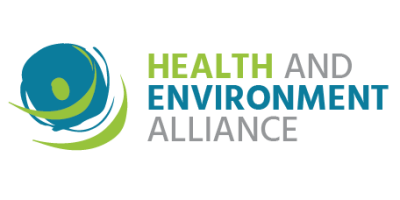

- Home
- Companies
- Health and Environment Alliance (HEAL)
- News
- Governments agree to reduce use of ...
Governments agree to reduce use of persistent chemicals (POPs)
Delegates at the meeting, held in Geneva in May, discussed the inclusion of nine new chemicals in Stockholm`s blacklist. This move would increase the list of the so-called `dirty dozen` to 21. The chemicals added are mainly pesticides and flame retardants (chlordecone, penta-BDE, hexabromobiphenyl, lindane, persistent perfluorinated compounds PFOS, octa-BDE, pentachlorobenzene, alpha-HCH and beta-HCH).
The NGO, the International POPs Elimination Network (IPEN), of which HEAL is a member, has welcomed this move but calls for tighter control measures of three of the listed chemicals. The three substances in question include two flame retardants (pentaBDE and octaBDE) used in furniture foams and in electrical office equipment and a chemical used in manufacturing and consumer products, perfluorooctane sulfonate (PFOS). Whilst new production of both pentaBDE and octaBDE has recently stopped, these chemicals persist in the environment and humans are exposed to them from the products and wastes in which they are still present. Delegates agreed that these substances persist in the environment, travel long distances, and cause harm to human health and the environment but have allowed for the continued recycling and reuse of products contaminated with these chemicals until 2030.
Professor Katima of the University of Dar Es Salaam and Co-Chairman of IPEN said `This will permit foam in furniture containing 18% pentaBDE to be chopped up, used as backing in new carpets, and returned to our homes where exposure will continue,` said. `The provisions will also allow these highly contaminated products to be exported from wealthy countries to the developing world, Africa in particular,” he added.
Also agreed at the Geneva conference was the launch ten new global projects to reduce the use of the pesticide Dichloro-diphenyl-trichloroethane (DDT) in combating malaria. DDT continues to be the most produced and used POP of the twelve banned substances listed in the Stockholm POPs convention]. Under the convention DDT is allowed to be used in public health for disease vector control. These limited exemptions fall under an `acceptable purposes` clause (EE 28/11/07), as recommended by and under the guidance of the World Health Organization (WHO). WHO recommends the use of DDT for indoor residue spraying only to control, in particular, the anopheles mosquito that carries the malaria parasite. The new initiatives to reduce DDT use in combating Malaria aim to replicate results from a successful pilot project in Mexico and Central America in 2003. The new projects are part of a greater UN environment programme (UNEP) and World Health Organisation (WHO) initiative promoting DDT alternatives, co-financed by the Global Environment Facility.
